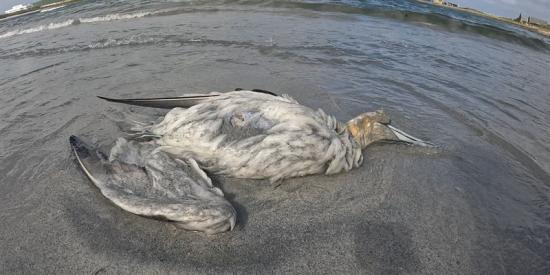Avian Influenza (Bird Flu) October Update From Naturescot
16th October 2022

Avian influenza is a virus that mainly affects birds. Migratory birds, especially water birds, carry different strains of the virus along their migration routes. Thankfully, the risk to human health from avian flu is very low, but members of the public should avoid touching sick or dead wild birds.
This autumn and winter we are concerned about the current H5N1 strain of avian flu in Scotland and its potential impact on wild bird populations. Avian influenza is a virus that mainly affects birds. Migratory birds, especially water birds, can carry the virus along their migration routes. Since seriously impacting seabird populations earlier this year, the avian flu crisis has been rapidly evolving and deteriorating. Tragically, this disease could be with us for some time to come.
Thankfully, the risk to human health from avian flu is very low, but members of the public should avoid touching sick or dead wild birds.
Avian flu is the latest and most devastating indication of how biodiversity loss makes our wildlife increasingly vulnerable. NatureScot is leading a task force, and together with expert partners, we are working at pace to understand and take action to make bird populations - and our biodiversity - more robust. As wintering geese begin to arrive in Scotland, NatureScot is monitoring the populations for signs of avian influenza using a network of staff and volunteers. We have been in contact with colleagues in Iceland and Norway to identify cases within the populations either breeding or passing through on migration and will carry out early counts of barnacle geese at key sites on the west and north coast of Scotland to inform management decisions.
Report all sightings of sick or dead birds to DEFRA on 03459 33 55 77 so that we can build a better picture of how the virus moves between places and species. Members of the public should avoid touching sick or dead wild birds. Visitors to sites where wild birds like geese congregate are encouraged to keep dogs on a lead to avoid them touching or picking up dead birds. More detailed information is available on the Scottish Government website
Avian influenza bird flu outbreaks n Scotland
Avian influenza - Protection Zone and Surveillance Zone - near Tankerness Orkney Islands
PHOTO
Dead Gannet - RSPB
